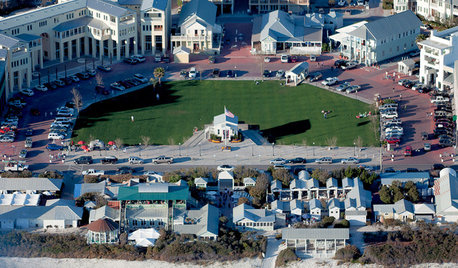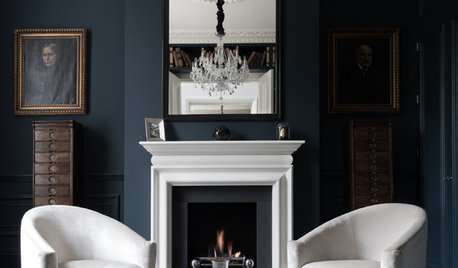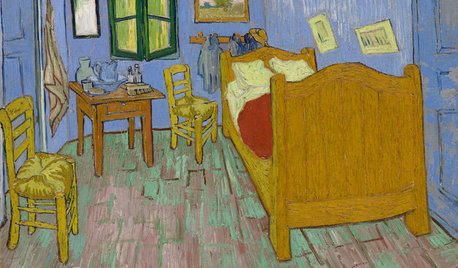Discussion of Charles Dickens' Novels, April 2012
carolyn_ky
12 years ago
Related Stories

LIFEHouzz Call: Where (and What) Are You Reading This Summer?
Whether you favor contemporary, classic or beach reads, do the long and lazy days of summer bring out the lit lover in you?
Full Story
ROOTS OF STYLEArt Deco, Art Nouveau, Arts and Crafts: What’s the Difference?
If the zigzag and swirly designs of the past leave your head spinning, these descriptions will straighten you right out
Full Story
LIFEThe Wisdom of Kenny Rogers, for Declutterers
No need to gamble on paring-down strategies when the country music legend has already dealt out some winning advice
Full Story
COMMUNITYTour a Pioneering Beach Town That Fosters Community
No cars, mixed-use zones, strict building codes ... a new book takes us inside Seaside, a champion of New Urbanism
Full Story
DECORATING GUIDESSo Your Style Is: Darkly Romantic
Envelop yourself in mysterious luxury with deep colors, rich textures and unexpected details
Full Story
REMODELING GUIDESWisdom to Help Your Relationship Survive a Remodel
Spend less time patching up partnerships and more time spackling and sanding with this insight from a Houzz remodeling survey
Full Story
GARDENING FOR BUTTERFLIESBe a Butterfly Savior — Garden for the Monarchs
Keep hope, beauty and kindness alive in the landscape by providing a refuge for these threatened enchanters
Full Story
EVENTSModernism Week 2015 Opens in Palm Springs
The city’s 10th annual festival celebrates midcentury architecture and design. Here’s a look at what’s on view
Full Story
HOUZZ TOURSMy Houzz: Midcentury Modern Style Transforms a Vineyard Bungalow
Spectacular surroundings and iconic design inspiration meet in a major overhaul of a 1960s Ontario home
Full Story
EVENTS15 Art and Design Events to Know for February
Revel in a month’s worth of art, gardening, architecture and more
Full Story


friedag
J C
Related Discussions
Classroom novels - 6,7,8th grade level...
Q
Book Discussions?
Q
What the Dickens?
Q
Dickens
Q
carolyn_kyOriginal Author
lydia_katznflowers
lydia_katznflowers
J C
carolyn_kyOriginal Author
friedag
carolyn_kyOriginal Author
frances_md
veer
friedag
frances_md
lydia_katznflowers
J C
carolyn_kyOriginal Author
lydia_katznflowers
phoebecaulfield
lydia_katznflowers
friedag
phoebecaulfield
friedag
phoebecaulfield
lydia_katznflowers
rosefolly
libraryangel
carolyn_kyOriginal Author
lydia_katznflowers
carolyn_kyOriginal Author
lydia_katznflowers
carolyn_kyOriginal Author
veer
carolyn_kyOriginal Author
veer
carolyn_kyOriginal Author
friedag
carolyn_kyOriginal Author
veer
carolyn_kyOriginal Author
phoebecaulfield
lemonhead101
Rudebekia
carolyn_kyOriginal Author
rosefolly
lydia_katznflowers
carolyn_kyOriginal Author
carolyn_kyOriginal Author
veer
J C
frances_md